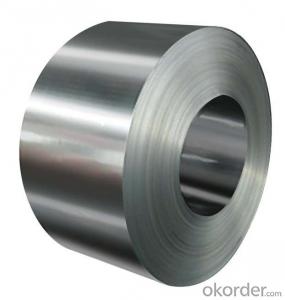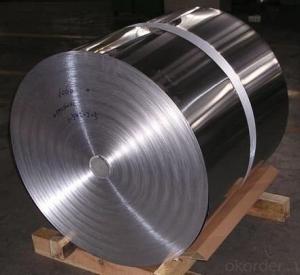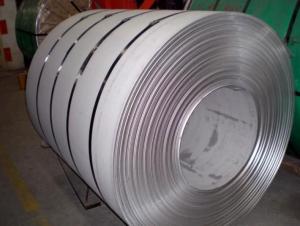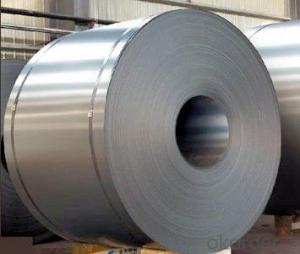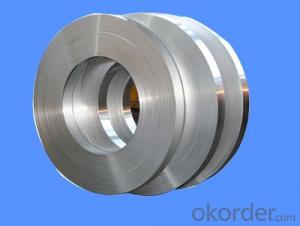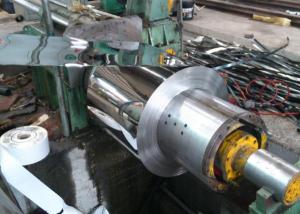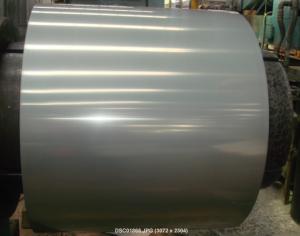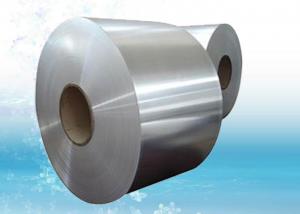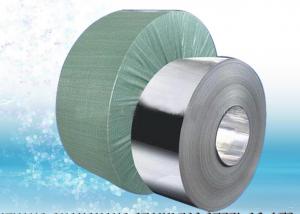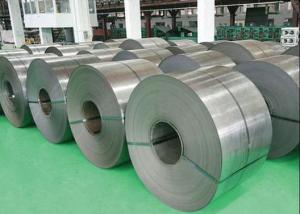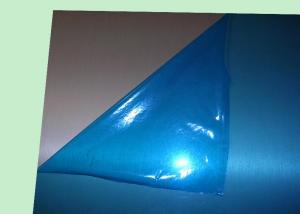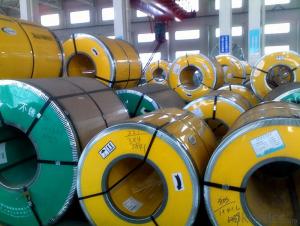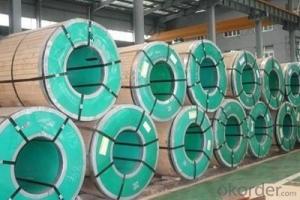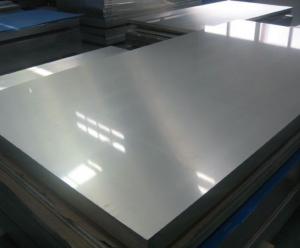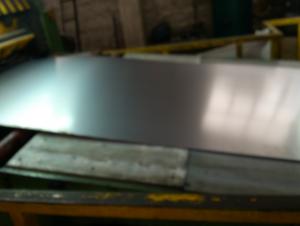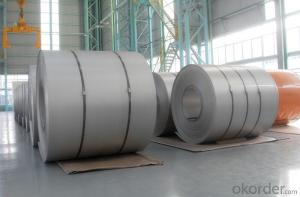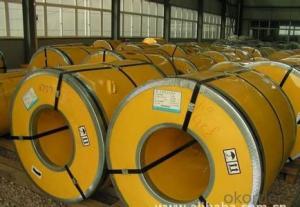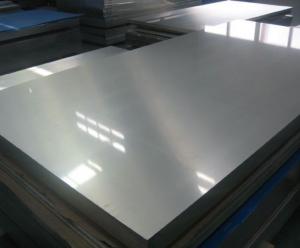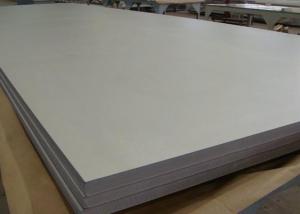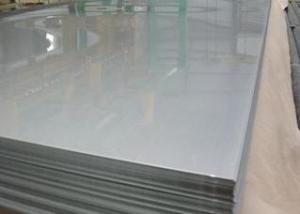High Quality 201 Coil Stainless Steel Plate/Sheet in Coils
- Loading Port:
- China main port
- Payment Terms:
- TT OR LC
- Min Order Qty:
- 20 m.t.
- Supply Capability:
- 1000 m.t./month
OKorder Service Pledge
OKorder Financial Service
You Might Also Like
Description of goods:Stainless steel plate/Stainless steel coil
Place of Origin:China(Mainland)
Brand Name:TISCO,POSCO,LISCO,BAOSTEEL,JISCO,YONGJIN METAL,EASTERN SPECIAL STEEL,FAR EAST NEW MATERIALect
Model Number:
201/202/301/302/303/303CU/304/304L/304F/304H/304J1/310/310S/314/314L/316/316L/321 //420/430/ 316/316L/316TI
Minimum Order Quantity:20 ton
Packaging Details:Standard export packing or According to customer's requirement
Delivery Time:Within 7-15 Days After Order Confirmed
Payment Terms:T/T, L/C, D/P
Price terms:FOB, CFR, CIF, EXW
Supply Ability:1000 tons per month
Applications:
applies to construction field, ships building industry, petroleum & chemical industries, war and electricity industries, food processing and medical industry, boiler heat exchanger, machinery and hardware fields. Used for equipments in chemical, coal and the petrochemical industry that request to high corrosion resistance-outdoor machine, architectural materiel, heat-resistant assembly and assemblies that hart to heat treatment. Stainless steel plate also can be made according to the customer's requirements.
Detailed Product Description
Product Name: | Stainless Steel Plates | Thickness: | According to customer's requirement |
Standard: | ASTM, AISI, JIS, EN, DIN, GB | Technology: | Hot Rolled |
Width: | 1000mm,1250mm,1500mm,1800mm,2000mm | Surface: | No.1,2B,No.4,Polishing 8K, Wire Drawing |
- Q:What are the recommended storage and transportation conditions for 111 stainless steel strips?
- The recommended storage conditions for 111 stainless steel strips include keeping them in a dry and clean environment, away from exposure to moisture, humidity, and corrosive substances. It is advisable to store them in a covered area with stable temperatures and low humidity levels. For transportation, it is crucial to protect the strips from physical damage and prevent contact with moisture or corrosive materials. Using appropriate packaging materials and ensuring secure handling during transit is highly recommended.
- Q:Can stainless steel strips be used in the nuclear industry?
- Yes, stainless steel strips can be used in the nuclear industry. Stainless steel is a popular material choice for various applications in the nuclear industry due to its excellent corrosion resistance and mechanical properties. It is commonly used in the construction of nuclear power plants, nuclear reactors, and related equipment. Stainless steel strips are used in the nuclear industry for a range of purposes. For instance, they can be used in the fabrication of nuclear fuel assemblies, which are crucial components of nuclear reactors. These fuel assemblies house the fuel rods that generate heat through nuclear fission. Stainless steel strips are used to provide structural support and ensure the integrity and safety of the fuel assemblies. Moreover, stainless steel strips are utilized in the construction of containment vessels and pressure vessels in nuclear plants. These vessels are responsible for containing radioactive materials and ensuring the safety of personnel and the surrounding environment. Stainless steel's resistance to corrosion and high-temperature environments makes it an ideal choice for these critical applications. Additionally, stainless steel strips are used in the manufacturing of various components such as piping systems, heat exchangers, valves, and pumps within nuclear facilities. These components require materials that can withstand harsh operating conditions, including high temperatures, radiation exposure, and corrosive environments. Stainless steel's durability and resistance to corrosion make it a reliable material for these applications. Overall, stainless steel strips are widely used in the nuclear industry due to their excellent properties, making them suitable for various applications. The industry relies on stainless steel's corrosion resistance, mechanical strength, and high-temperature tolerance to ensure the safety and efficiency of nuclear power generation.
- Q:Are stainless steel strips suitable for conveyor belts?
- Yes, stainless steel strips are highly suitable for conveyor belts due to their durability, heat and corrosion resistance, and high strength-to-weight ratio. They can withstand heavy loads, extreme temperatures, and harsh environments, making them an excellent choice for various industries that require reliable and long-lasting conveyor systems.
- Q:How do stainless steel strips resist pitting?
- Stainless steel strips resist pitting due to the presence of chromium in the alloy, which forms a passive oxide layer on the surface. This oxide layer acts as a protective barrier, preventing the penetration of corrosive agents and thus reducing the risk of pitting corrosion.
- Q:Can stainless steel strips be used in the production of automotive body panels?
- Automotive body panels can indeed incorporate stainless steel strips. This material is widely chosen for its remarkable resistance to corrosion, as well as its strength and durability. It can easily withstand harsh environmental conditions, such as salt, moisture, and chemicals, which makes it perfect for automotive applications. Moreover, stainless steel is highly malleable and can be shaped into intricate curves and angles required for body panels. Its attractive finish also adds to the overall aesthetics of the vehicle. Consequently, stainless steel strips are extensively utilized in the production of automotive body panels, providing a blend of strength, longevity, resistance to corrosion, and visual allure.
- Q:How are stainless steel strips different from stainless steel sheets or plates?
- Stainless steel comes in various forms, including strips, sheets, and plates. However, these forms differ in terms of their dimensions and applications. For instance, stainless steel strips are slim and lengthy pieces with a thickness typically ranging from 0.2mm to 6mm. These strips find common use in industries such as automotive, construction, and manufacturing. Their thinness and flexibility make them ideal for precise shaping, bending, or forming. As a result, they are commonly employed in the production of components, springs, and electrical connectors. In contrast, stainless steel sheets and plates are larger and thicker. Sheets usually have a thickness of 0.4mm to 6mm, while plates are even thicker, ranging from 6mm to 80mm or more. These forms of stainless steel are utilized in various sectors, including architecture, kitchenware, and industrial equipment. Their larger size and thickness make them suitable for applications such as cladding, roofing, countertops, and heavy-duty machinery parts. Although both stainless steel strips and sheets/plates possess corrosion resistance and durability, their distinct dimensions and applications make them suitable for specific uses. The decision to choose between strips, sheets, or plates depends on the project's requirements, including the desired thickness, size, and intended application.
- Q:Are stainless steel strips suitable for dairy equipment?
- Yes, stainless steel strips are suitable for dairy equipment. Stainless steel is widely used in the dairy industry due to its excellent properties. It is corrosion-resistant, hygienic, and easy to clean, making it ideal for applications where cleanliness and sanitation are crucial, such as in dairy processing equipment. Stainless steel also has high strength and durability, which ensures long-lasting performance even in harsh conditions. Additionally, stainless steel is non-reactive, meaning it does not interact with dairy products, preserving their taste and quality. Overall, stainless steel strips are a reliable and suitable choice for dairy equipment.
- Q:Are stainless steel strips resistant to acids and alkalis?
- Stainless steel strips have a general resistance to acids and alkalis. Chromium, found in stainless steel, creates a passive oxide layer on the metal's surface. This oxide layer serves as a protective barrier, safeguarding the steel from corrosion. Consequently, stainless steel exhibits strong resistance to both acids and alkalis. Nevertheless, the level of resistance may fluctuate depending on the stainless steel's specific grade and composition. Certain grades might demonstrate higher resistance to particular acids or alkalis compared to others. It is advisable to seek guidance from the manufacturer or supplier for precise information regarding the resistance of a specific stainless steel grade to acids and alkalis.
- Q:Can stainless steel strips be used in heat exchangers?
- Heat exchangers can indeed utilize stainless steel strips. Stainless steel is a favored option for heat exchangers because of its remarkable resistance to corrosion, ability to withstand high temperatures, and durability. It can endure the challenging operating conditions and thermal fluctuations frequently encountered in heat exchanger applications. Furthermore, the sleek surface of stainless steel strips aids in reducing fouling and promoting efficient heat transfer. Moreover, stainless steel boasts commendable mechanical properties, rendering it appropriate for different types of heat exchangers, including shell and tube, plate, and finned heat exchangers.
- Q:Can stainless steel strips be used in medical devices?
- Medical devices can incorporate stainless steel strips, as they possess certain properties that make them suitable for this purpose. Stainless steel is a commonly utilized material in the manufacturing of medical devices due to its distinct characteristics. Its corrosion resistance is particularly crucial for devices that come into contact with bodily fluids and tissues. Moreover, stainless steel is known for its remarkable strength, durability, and outstanding biocompatibility, enabling its utilization in a wide range of medical applications, including surgical instruments, implants, and diagnostic equipment. Furthermore, stainless steel can be readily sterilized, guaranteeing the safety and efficacy of medical devices.
1. Manufacturer Overview |
|
|---|---|
| Location | |
| Year Established | |
| Annual Output Value | |
| Main Markets | |
| Company Certifications | |
2. Manufacturer Certificates |
|
|---|---|
| a) Certification Name | |
| Range | |
| Reference | |
| Validity Period | |
3. Manufacturer Capability |
|
|---|---|
| a)Trade Capacity | |
| Nearest Port | |
| Export Percentage | |
| No.of Employees in Trade Department | |
| Language Spoken: | |
| b)Factory Information | |
| Factory Size: | |
| No. of Production Lines | |
| Contract Manufacturing | |
| Product Price Range | |
Send your message to us
High Quality 201 Coil Stainless Steel Plate/Sheet in Coils
- Loading Port:
- China main port
- Payment Terms:
- TT OR LC
- Min Order Qty:
- 20 m.t.
- Supply Capability:
- 1000 m.t./month
OKorder Service Pledge
OKorder Financial Service
Similar products
New products
Hot products
Related keywords
